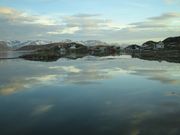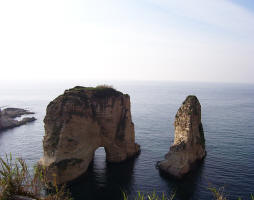 Water shortages affect food, transit, security
Water shortages affect food, transit, security
For 15 years, the United Nations has been observing "World Water Day," a
time to consider the opportunities and challenges presented by a resource
essential to the environment and to humankind.
It's becoming clear now that climate change may be altering the way people
and governments think about water.
The UN reported this week that the world's glaciers are melting at "an
alarming rate." Like reservoirs, glaciers store water and then release it at
predictable rates, around which humans have formed communities and built
economies. Agency France-Presse, the French news service, quotes Achim
Steiner, executive director of the United Nations Environment Program, as
saying:
"Millions if not billions of people depend directly or indirectly on these
natural water storage facilities for drinking water, agriculture, industry,
and power generation during key parts of the year."
As a result of shrinking glaciers, people will have to change their
lifestyles, their farming, even move their homes, Mr. Steiner says.
Britain's Sunday Observer further quotes Steiner as saying:
"While I'm always cautious about 'water wars,' certainly the potential for
water to become a trigger for more tension and, where there's already
conflict, to exacerbate conflict is another issue that's not
hypothetical."
Global warming is raising ocean levels, meaning seawater will encroach on
wetlands, rivers, and streams, according to recent reports by the US
Environmental Protection Agency and the National Research Council (NRC), the
research arm of the National Academy of Sciences.
| Contact information |
Brad Knickerbocker
|
|---|---|
| News type | Inbrief |
| File link |
http://www.csmonitor.com/2008/0320/p17s01-sten.html |
| Source of information | CS MONITOR |
| Keyword(s) | Water shortages |
| Subject(s) | RISKS AND CLIMATOLOGY , WATER DEMAND |
| Geographical coverage | International |
| News date | 21/03/2008 |
| Working language(s) | ENGLISH |
 you are not logged in
you are not logged in





